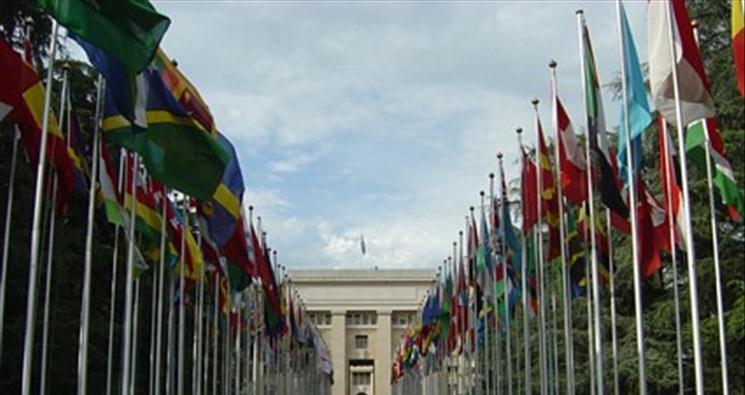ACLJ: Protecting Religious Freedom Here and Abroad
Earlier this week, the U.S. Commission on International Religious Freedom released its 2012 report highlighting religious liberty issues in 25 countries. The report recommends to the President various changes to U.S. foreign policy to ensure that the U.S. make religious freedom a top priority of our government when dealing with some of the world’s worst abusers of religious freedom. In preparation for the report the Commission, commonly referred to as USCIRF, requested the ACLJ submit a report about our international work around the world defending religious liberties. The ACLJ, in collaboration with our affiliate offices in Russia and Pakistan, submitted reports for the Commission’s review. As a result, the 2012 USCIRF report includes several accounts reported by the ACLJ and its international affiliates.
The ACLJ’s international affiliates actively protect religious freedom all over the globe. In Pakistan, the Center for Law and Justice, defends Christians and other religious minorities from false accusations of blasphemy, protects Christians from having their property illegally destroyed or acquired, and representing victims and their families who were subject to violence because of their religious beliefs. The 2012 USCIRF report recognized the great work of the Center for Law and Justice-Pakistan in winning a rare and precedential case where three Muslims who had murdered a Christian were sentenced to life imprisonment.
As the ACLJ and the Center for Law and Justice – Pakistan highlighted for USCIRF, Pakistan fails to protect its religious minorities from extremist, Islamist vigilantes and the continued existence and abuse of the blasphemy laws has created a hostile environment for religious minorities.
In July 2010, Christian pastor Rashid Emmanuel and his brother, who were accused of writing a blasphemous pamphlet, were shot while being transported from the courtroom to the jail. The victims were likely to be exonerated after experts concluded that they did not write the pamphlet. In January 2011, Governor Salman Taseer was murdered by one of his bodyguards after vowing to repeal Pakistan’s blasphemy laws and supporting Asia Bibi. Sherry Rehman, a Muslim MP, was threatened shortly thereafter for introducing a bill seeking to amend the blasphemy laws. A few months later, Minister Shahbaz Bhatti was assassinated after advocating against Pakistan’s blasphemy laws. Pakistan’s inability to combat this climate of vigilantism undermines its declaration that it is working towards full democracy, restoring the rule of law, and mainstreaming universal human rights.
The ACLJ and its affiliate, the Center for Law and Justice – Pakistan remain committed to protecting religious minorities and victims of the Islamist vigilantes. We applaud USCIRF for recommending for the tenth straight consecutive year that Secretary of State, Hillary Clinton, add Pakistan to the list of countries of particular concern for its egregious violations of religious freedom.
USCIRF also recommended that Secretary Clinton add seven other countries to the list of countries of particular concern: Egypt, Iraq, Nigeria, Tajikistan, Turkey, Turkmenistan, and Vietnam. Moreover, the report recommended that eight countries be re-designated as countries of particular concern: Burma, China, Eritrea, Iran, North Korea, Saudi Arabia, Sudan, and Uzbekistan.
The ACLJ also applauds USCIRF for its call that Iran “release all Christians, including Youcef Nadarkhani” and those held “in prison on account of their religion or belief,” and for asking that the Iranian regime “drop all pending charges against Christian converts.” The report reiterates what the ACLJ has argued, “[t]he government of Iran continues to engage in systematic, ongoing, and egregious violations of religious freedom, including prolonged detention, torture, and executions based primarily or entirely upon the religion of the accused.” The report calls on the U.S. government to “work within its current overall policy framework to ensure that violations of freedom of religion or belief and related human rights are part of all formal and informal multilateral or bilateral discussions with representatives of the Iranian government.”
From the classroom here in the United States to the religious battlefields abroad, the ACLJ remains committed to fighting for religious freedom.
